Commodity intensity of global GDP in 30 key charts?
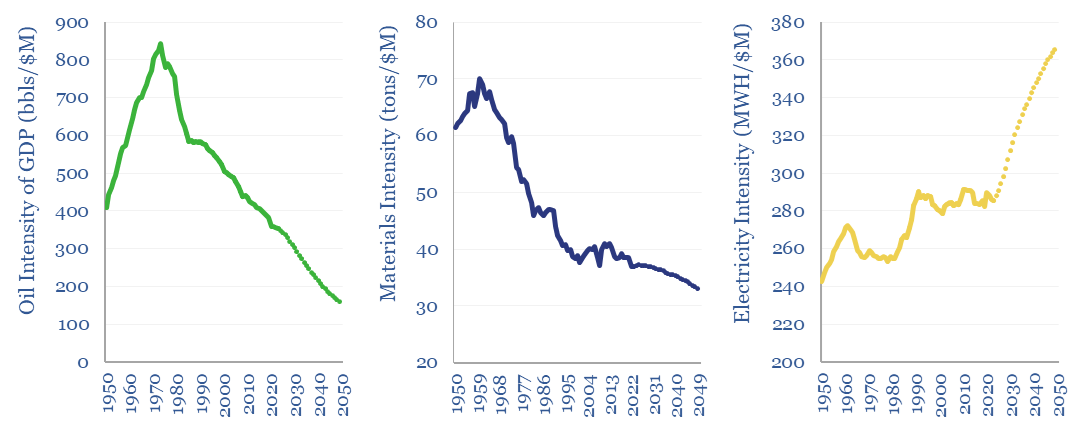
…of plastics, 1.8 tons of ammonia, 1 ton of hydrogen, 0.7 tons of aluminium, 0.3 tons of copper. These inputs are crucial to the global economy, which in turn drives…

…of plastics, 1.8 tons of ammonia, 1 ton of hydrogen, 0.7 tons of aluminium, 0.3 tons of copper. These inputs are crucial to the global economy, which in turn drives…
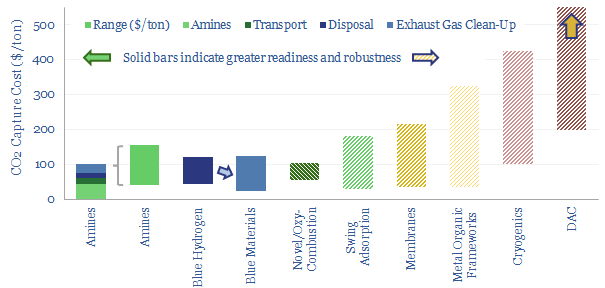
…the Inflation Reduction Act are already kickstarting a boom in blue value chains, from blue ammonia, to blue steel, to blue chemicals. This exciting theme is gathering momentum at a…
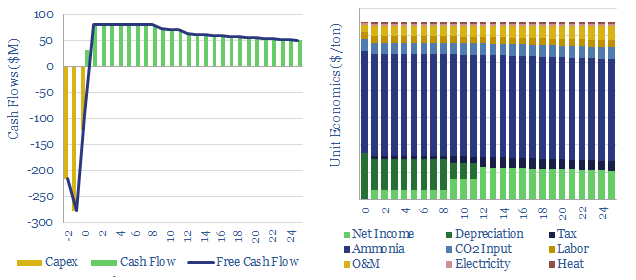
…which is disaggregated in the file across ammonia inputs, CO2 inputs, electricity inputs and heat inputs. These numbers can all be stress-tested. Sensitivity matters. At $6-10/mcf gas prices, marginal costs…
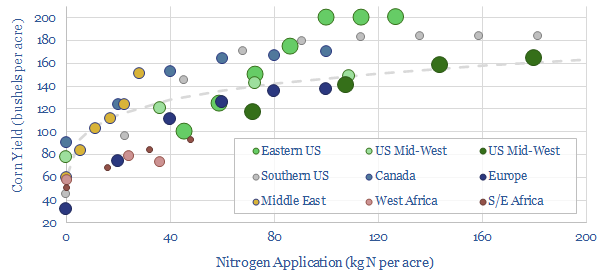
…soil nutrients; and the nuances of how/when fertilizers are applied in the growing cycle. Nitrogen that is applied in the form of ammonia, ammonium nitrate, urea or NPK is always…
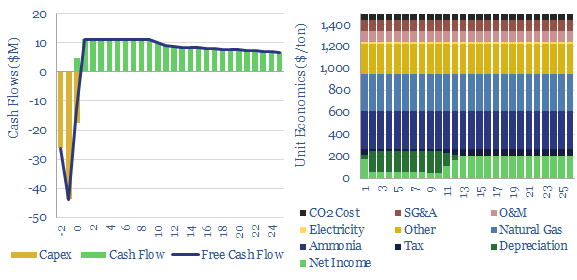
…the Andrussow Processes, at 1,126ºC and 14.7 psi, converting methane, ammonia and air into hydrogen cyanide, carbon monoxide and carbon dioxide. Hydrogen cyanide can then be further processed into sodium…
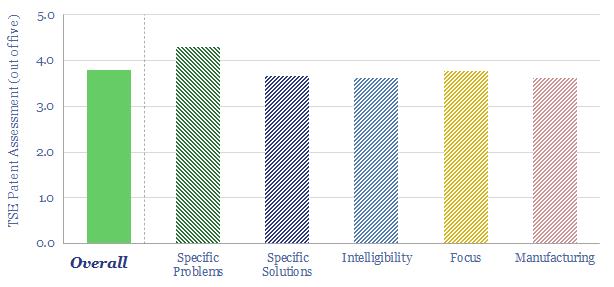
…to air, including for ammonia, amines, but especially for toxic/carcinogenic breakdown products, such as nitrosamines, which ideally will not be generated at all; and (e) have low corrosiveness. To address…
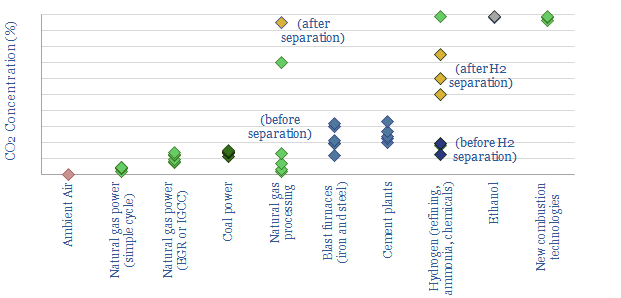
…hydrogen from SMR in the refining, ammonia, chemicals and blue hydrogen industries). These are the most promising options for CCS, in our view. This simple data file aggregates data into…
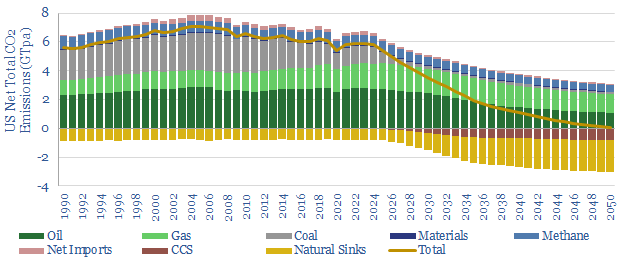
…blue value chains, catalysed by reforms to the 45Q incentive, under the US IRA, for example blue ammonia and blue steel. All of our CCS research is here. CO2 removals…
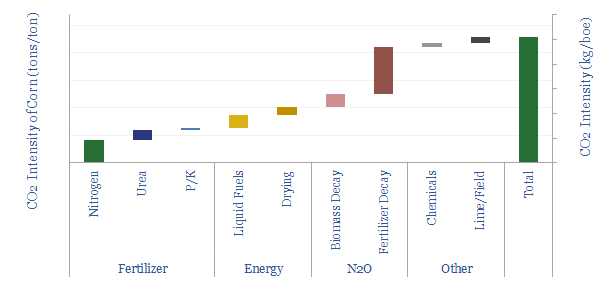
…explains around 7% of total US greenhouse gas emissions (per the EPA). Another 30% of the total emissions footprint for producing crops is from producing fertilizers themselves, such as ammonia…
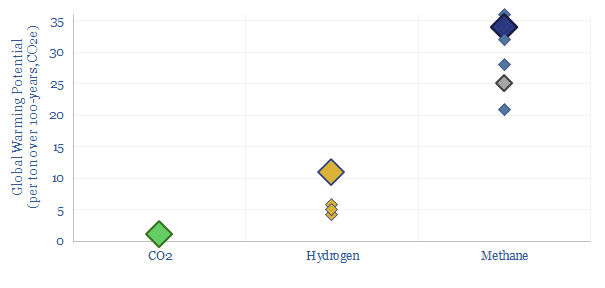
…shorter and simpler value chains, direct substitution for pre-existing hydrogen in industry; or transporting hydrogen in carrier molecules (toluene, ammonia, electrofuels are less likely to result in hydrogen emissions, even…